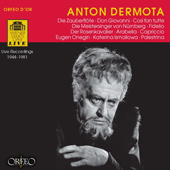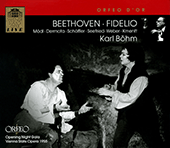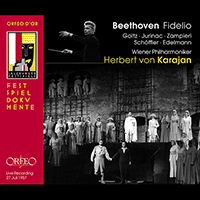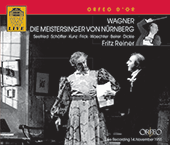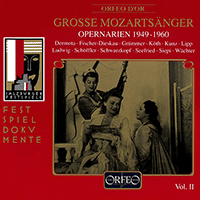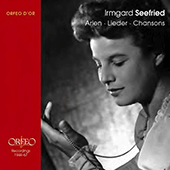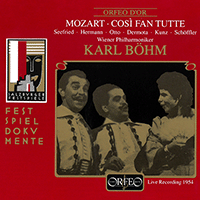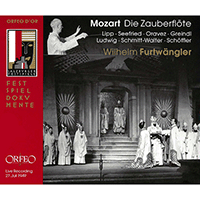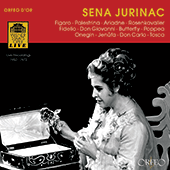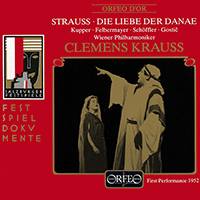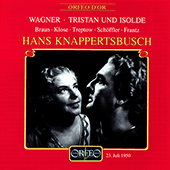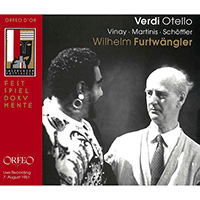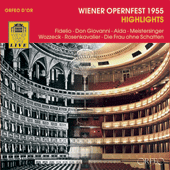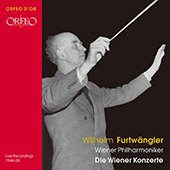Paul Schöffler
Paul Schöffler studied several different subjects at the Dresden Conservatory – piano, violin and theory – as well as singing, for which his teachers were Rudolf Schmalnauer and Waldemar Stägemann. After graduating he continued his vocal studies with Sammarco in Milan. He auditioned successfully for Fritz Busch at the Dresden State Opera in 1924, making his operatic stage debut there as the Herald / Lohengrin in 1925 and staying with the Dresden Opera until 1937. Initially Schöffler sang smaller baritone parts before graduating to more substantial roles. He participated in a number of notable first performances in Dresden including Doktor Faust (Busoni, 1925), Der Protagonist (Weill, 1926), Cardillac (Hindemith, 1926), Penthesilea (Schoeck, 1927), Der Günstling (Wagner-Régeny, 1935) and Der verlorene Sohn (Heger, 1936).
By the time Schöffler left the Dresden company in 1937 he had already enjoyed success as a guest at the Royal Opera House, London where he made his debut in 1934 as Donner / Das Rheingold with Beecham conducting. He confirmed the excellent impression that he had made when, in the same year, he took the title role in the English premiere of Weinberger’s Schwanda the Bagpiper. He appeared twice in London during 1936, as Scarpia / Tosca and (with the visiting Dresden Opera) as Figaro / Le nozze di Figaro and in the title role in Don Giovanni, winning praise for both his singing and acting. Later roles in London included Gunther / Götterdämmerung, Kurwenal / Tristan und Isolde, Jochanaan / Salome and Wotan / Das Rheingold – described at the time as ‘lightweight’.
In 1937 Schöffler joined the Vienna State Opera, continuing as a valued and highly respected member of this company until 1965. Indeed he remained at the top of the operatic tree for a long time, appearing at the Bayreuth Festival as Hans Sachs / Die Meistersinger von Nürnberg in 1943 with Abendroth conducting and returning in 1956 to take the title role in Der fliegende Holländer with Keilberth at the helm. Schöffler appeared with great regularity at the Salzburg Festival, where his roles included Pizarro / Fidelio (1938, 1949–1950, 1957), Figaro and the Count / Le nozze di Figaro (1941, 1953), Don Alfonso / Così fan tutte (1947, 1953–1954, 1956, 1962), Iago / Otello (1952) and Borromeo / Palestrina (1955). He also sang in two important first public performances, creating the title part in Dantons Tod (Gottfried von Einem, 1947) and the part of Jupiter in Die Liebe der Danae (Richard Strauss, 1952, following its closed dress rehearsal in 1944).
After World War II Schöffler returned to Covent Garden in 1947 with the visiting Vienna State Opera to sing the title role in Don Giovanni (described as ‘Germanic’), Don Alfonso and Pizarro. With the new Covent Garden Opera Company he repeated his Kurwenal and Rheingold Wotan, to which he added Gunther and a genial Hans Sachs. By this time he had already appeared with success at the Paris Opera, La Scala, Milan, the Rome Opera and the Teatro Colón, Buenos Aires, as well as the Hamburg and Munich State Operas.
Schöffler made his North American debut at the beginning of 1950 at the Metropolitan Opera, New York as Jochanaan, immediately followed by Don Giovanni, Hans Sachs, Scarpia and Amfortas / Parsifal. He returned for the following season, 1950–1951, when he added the Dutchman, the Speaker / Die Zauberflöte, Kurwenal and Don Pizarro to his American repertoire. In the 1951–1952 Met season, new roles included Gunther, Orest / Elektra and the High Priest / Alceste; and in 1952– 1953 the Grand Inquisitor / Don Carlo. Schöffler continued to sing at the Met in the 1954–1955 and 1955–1956 seasons, returning after a gap of several years for the 1962–1963, 1963–1964 and 1964–1965 seasons to sing Sachs, the Grand Inquisitor and the Music Master / Ariadne auf Naxos – altogether an impressive innings. Other American appearances included Wotan at San Francisco in 1953 and at Chicago in 1956.
Late appearances included the Music Master at the Aix-en-Provence Festival in 1962 and 1964, Peneios / Daphne at the Vienna Festival in 1964 with Böhm conducting, participation in the premiere of Hauer’s Die schwarze Spinne at the Theater an der Wien in 1966 and the Grand Inquisitor at the Vienna State Opera in 1970.
Schöffler, who prior to his death lived in England, possessed a firm, warm and expressive voice; when allied to his convincing stage presence the results were continuously impressive. The extraordinary extent of his career – articulated at an international level from the 1930s to the 1960s – is demonstrated by the vast number of recordings, especially of live performances, in which he sings.
© Naxos Rights International Ltd. — David Patmore (A–Z of Singers, Naxos 8.558097-100).








